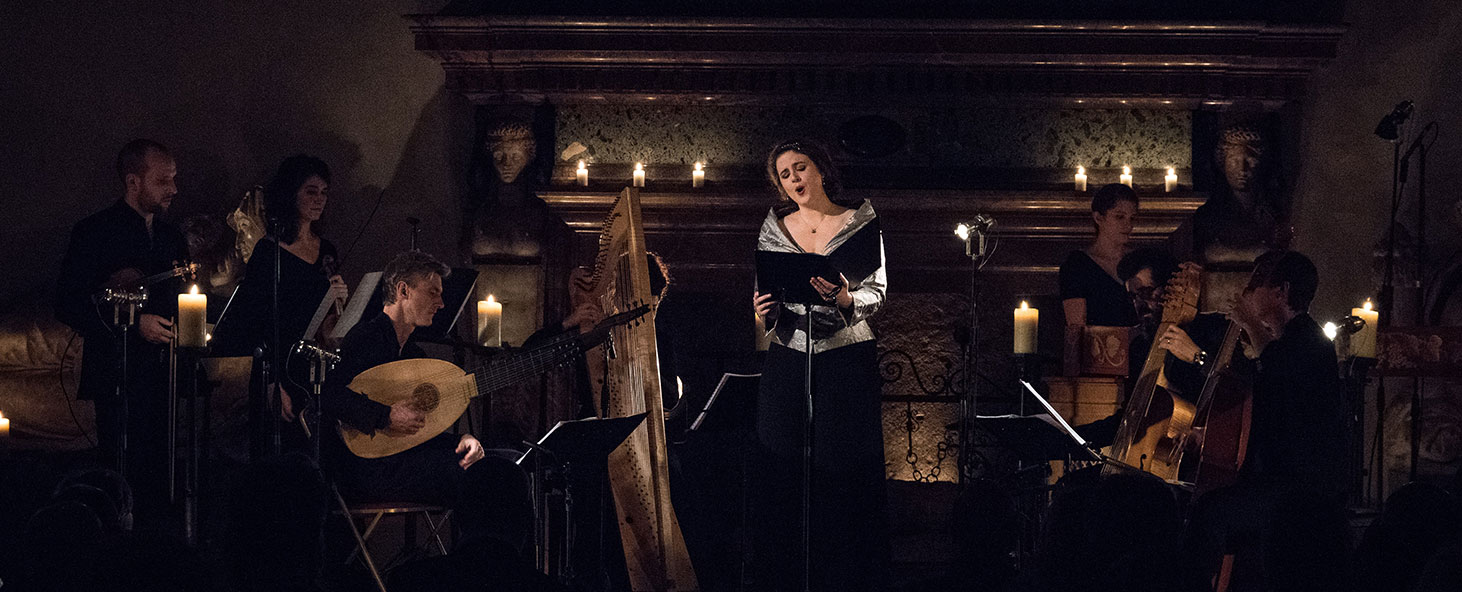by Peter Feher

And you couldn’t have asked for a better setting. The dazzling program featured mezzo-soprano Eva Zaïcik and a small group of period instrumentalists in more than a dozen selections that could have been heard during the early years of the Sun King’s reign — when he hadn’t yet moved to Versailles and still kept his court at the Louvre.
The connections with the Museum didn’t stop there. Before the concert, Gabe Pollack, CMA’s Director of Performing Arts, reminded listeners that “French culture is on full display” this fall with the special exhibition Degas and the Laundress: Women, Work, and Impressionism. A representative from the office of Mayor Justin Bibb then took the stage to present Dumestre with a certificate commemorating the sister-city relationship between Cleveland and Rouen, where Le Poème Harmonique is based.
But the significance of the location was simpler than all that. A museum can make a rich life available to anyone, and Dumestre and his ensemble have thoroughly embraced this idea. The Louvre was a royal and artistic residence before it opened to the public in 1793.
The soundtrack to Louis XIV’s reign was less ornate than his palaces might suggest. Le Poème Harmonique opened Wednesday’s program with several understated pieces by the French aristocracy’s favored composers. Jean-Baptiste Lully may have been king among the musicians of his day, but even he still had to work within the bounds of decorum. So, an air from his Ballet de Flore, “Plainte de Vénus sur la mort d’Adonis,” approaches the drama of opera but never overdoes it. (Lully wouldn’t start writing operas until he had royal approval several years later.)
And the greatest pleasures don’t always reside in the highest places, as Zaïcik and the ensemble demonstrated in a clever sequence of songs performed mostly without pause. Formal compositions, like Marc-Antoine Charpentier’s Air sur les Stances du Cid and Étienne Moulinié’s L’auzel ques sul bouyssou, gave way to folk and popular tunes of anonymous origins. The set concluded with Quand je menais les chevaux boire, a signature number for Le Poème Harmonique and the highlight of the evening, sung by Zaïcik with haunting intimacy.
The mezzo-soprano showed astonishing range in the concert’s second half, which shifted abruptly to Italy. Without an intermission, the group launched into the music of Francesco Cavalli, Marco Uccellini, and Giovanni Battista Buonamente, and the change in scene was audible. Suddenly, everything became extroverted, from Zaïcik’s diva-like delivery to the virtuoso scales exchanged among the instruments of the ensemble. Violinists Fiona Émilie Poupard and Louise Ayrton tossed brilliant phrases back and forth, and Dumestre coordinated striking unison moments while plucking away on theorbo.
This was the 17th-century musical tradition that Louis XIV would ultimately seek to surpass in later years, which witnessed Lully’s development of the tragédie lyrique (a French form of opera to rival Italy’s).
But that’s a story for another program. In two very different encores, Dumestre and Le Poème Harmonique only hinted at the directions these national traditions would take. Zaïcik sang out in the florid, Italianate runs of “Where shall I fly?” (from Handel’s musical drama Hercules) before winding it down with Serge Gainsbourg’s La javanaise — a pop song for everyone from the king of French cool, no less.
Published on ClevelandClassical.com November 9, 2023.
Click here for a printable copy of this article



